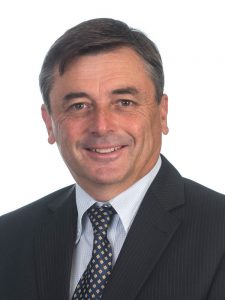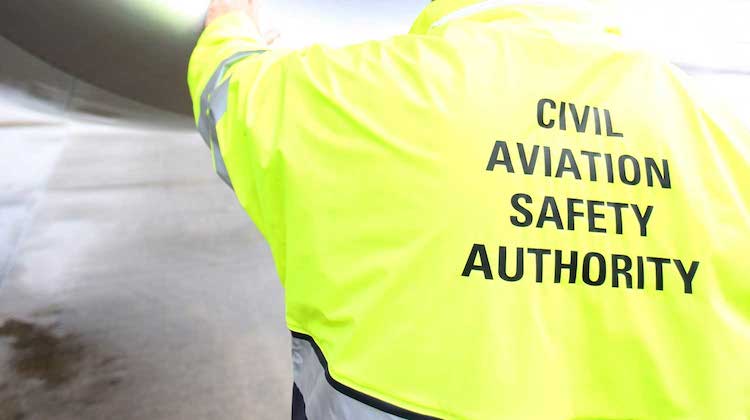Civil Aviation Safety Authority (CASA) chairman Jeff Boyd has suggested a new funding model that includes international operators would be a more equitable way of funding the organisation.
Currently, CASA receives the bulk of its funding from a fuel excise on domestic flights. International flights are not subject to the fuel excise.
With the downturn in the mining industry affecting demand for charter and fly-in/fly-out services, coupled with a lack of capacity growth among Australia’s regular public transport (RPT) operators due to a sluggish economy, CASA’s income fell $3.1 million in 2014/15, according to the organisation’s annual report.
Overall, CASA suffered an operating deficit of $5.5 million in the 12 months to June 30, 2015, a decline from the operating deficit of $4.2 million in the prior year. The nation’s aviation safety regulator is budgeting for an operating deficit of $10 million in the current financial year.
Boyd says the organisation needs to find different ways of funding itself and raised the prospect of changing the fuel excise and including international flights into the mix.
“One thing we would like to see is the internationals contribute something to the running of CASA. Anyone operating an international flight, there is not one cent of fuel tax on that international fuel,” Boyd told guests at a charity lunch hosted by consulting group AvLaw in Sydney on Friday.
“One of the suggestions we would have is some form of a levy that everyone pays. It could be as little as 20 cents or 25 cents, but if that is across the board – every person coming or going on every flight whether it be domestic or international in Australia – we could remove the fuel levy altogether.
“I think that is a far more equitable way of funding the organisation. I just have to convince the Minister and might need a bit of help from industry for that too.”

Deputy Prime Minister and Minister for Infrastructure and Regional Development appointed Boyd to the CASA board as deputy chairman in in July 2014, before naming him chairman in July 2015.
Boyd, who founded Brindabella Airlines and was also previously chairman of the Regional Aviation Association of Australia (RAAA), acknowledged the implementation of CASA’s Part 61 licensing regulations has been a “debacle”.
The nation’s aviation safety regulator has formed a full-time taskforce to resolve issues raised by Part 61, which covers pilot ratings, licences and endorsements, as well as a number of other licensing regulations. An advisory panel comprising members of key industry groups has also been set up to address unintended consequences in the licensing suite.
Boyd said the Part 61 regulations were written up without adequate communication from industry and he lobbied against their introduction before he joined the CASA board.
“I was very much involved in it not being brought out when I was on the industry side,” Boyd said.
“We knew Part 61 was never going to work. It got put in a drawer for 12 months and instead of being reworked and rejigged unfortunately the very last day that our previous CEO was in the organisation he promulgated Part 61 as it was 12 months previously.
“The results have been horrendous for the organisation and for industry. It’s a debacle.”
CASA director of aviation safety Mark Skidmore said in October the taskforce and advisory panel would work “intensively” to address unintended consequences in the licensing suite.
“CASA has already addressed many concerns that have been identified in the new licensing regulations but I understand more needs to be done,” Skidmore said in a statement.
“This is a priority and that’s why I need a dedicated team of people within CASA working full-time on the issues.”
The rewriting of CASA’s licensing suite is just one aspect of the reforms currently underway at the organisation.
In November, CASA also unveiled a corporate restructure that sought to improve service delivery and operational efficiency. Boyd said the new-look organisation would reduce the number of executive managers from 10 to five and save $5.2 million in management salaries.
“I think we are well on our way to a new, invigorated organisation,” Boyd said.
“I want to see a combination of injection of some new blood into the the organisation, new skill, but I also want to see the people that are keen and want to stay there and want to achieve, I want to see them flourish.”
The restructure was part of CASA’s response to the Aviation Safety Regulatory Review and was expected to be completed by the end of the 2015/16 financial year.
While Australia’s peak aviation groups have previously expressed concern with the slow pace of change at CASA, Boyd said everyone at the organisation was moving as quickly as possible to complete the reforms necessary to better serve the aviation community.
“I know we are copping flack at the moment because we are not implementing things fast enough in this ASRR report,” Boyd said.
“No one more than me would like to see things happen quicker than it is but it is happening.”
“We are working our way through. The ASRR report is my road map of how we are going to make CASA a better organisation.”





